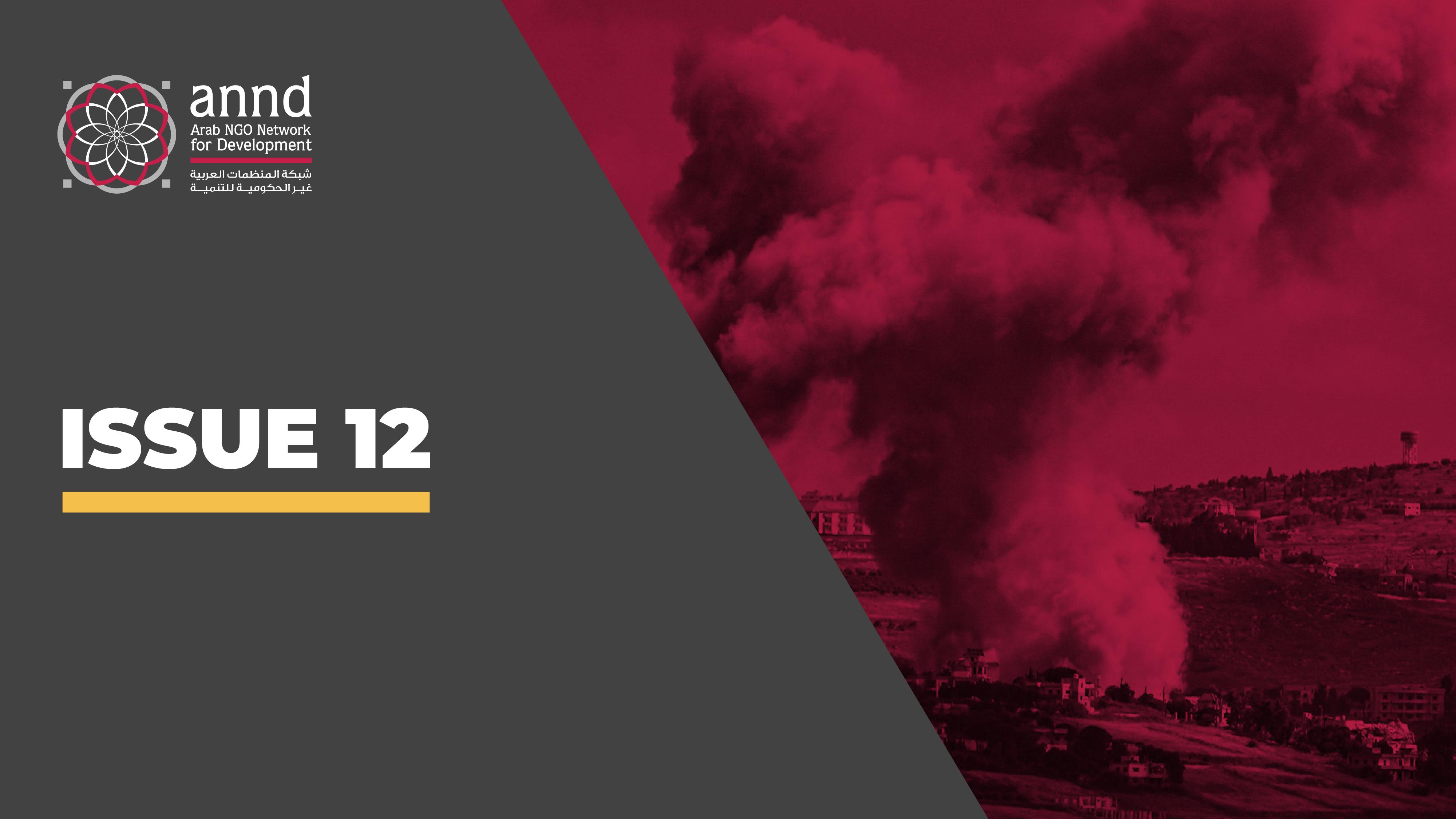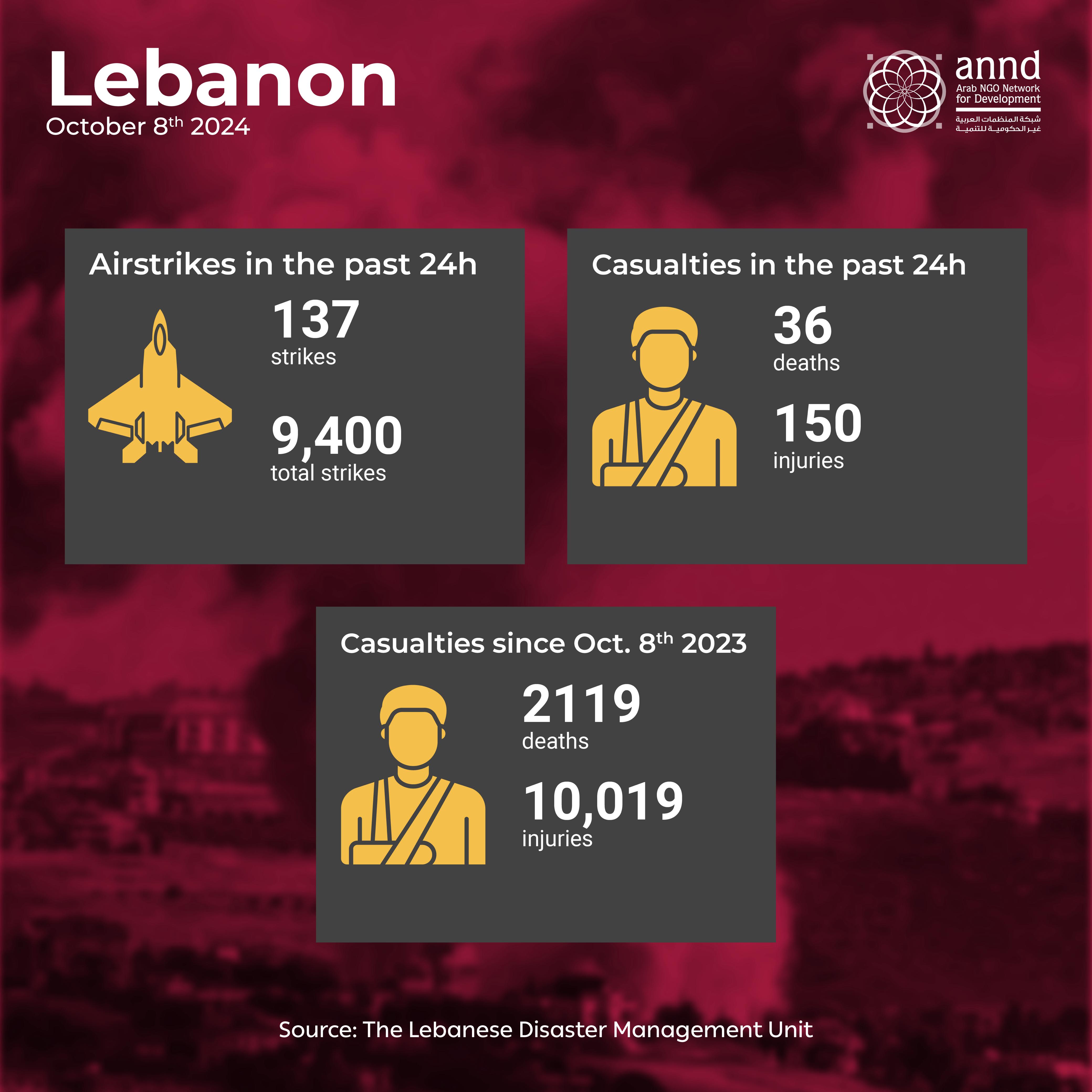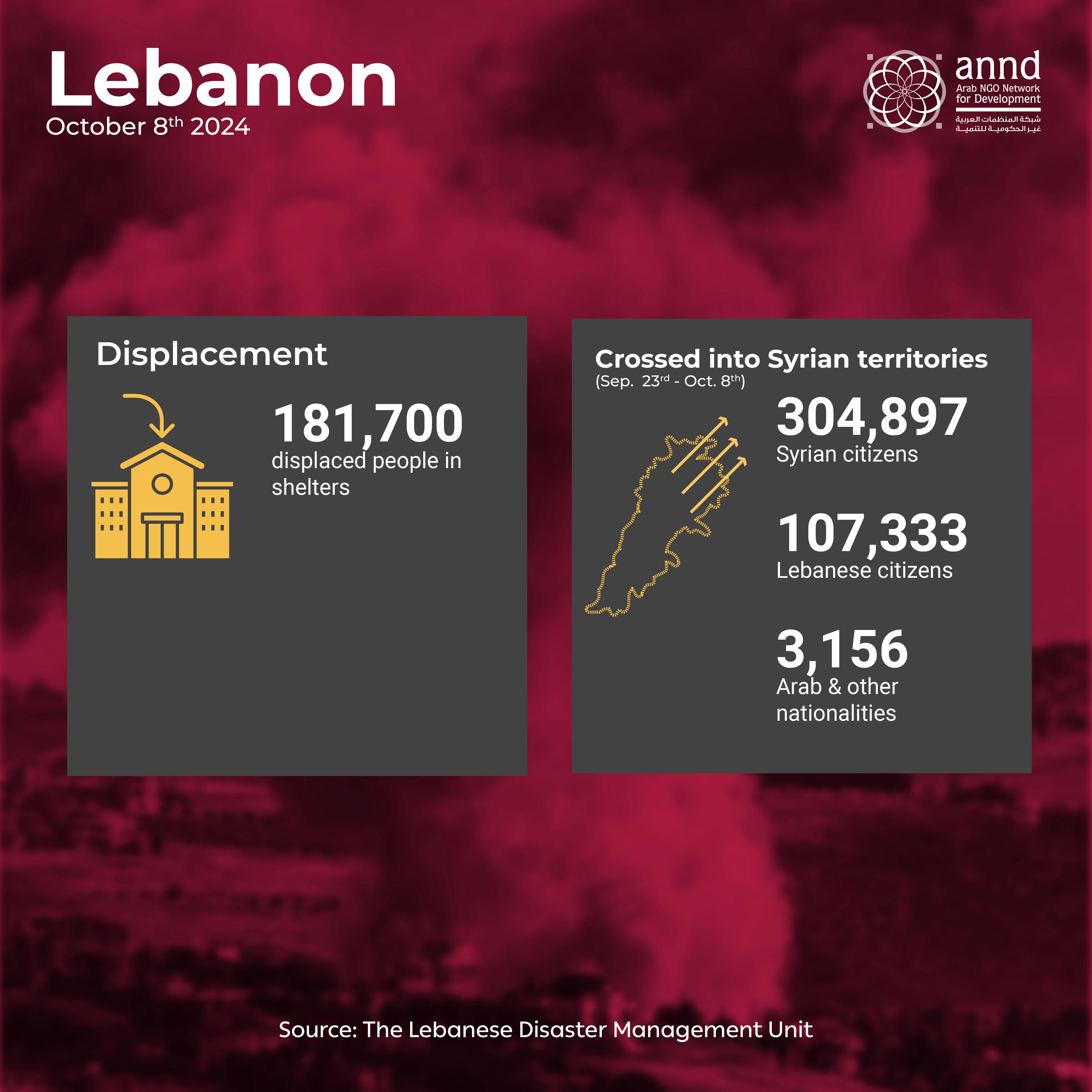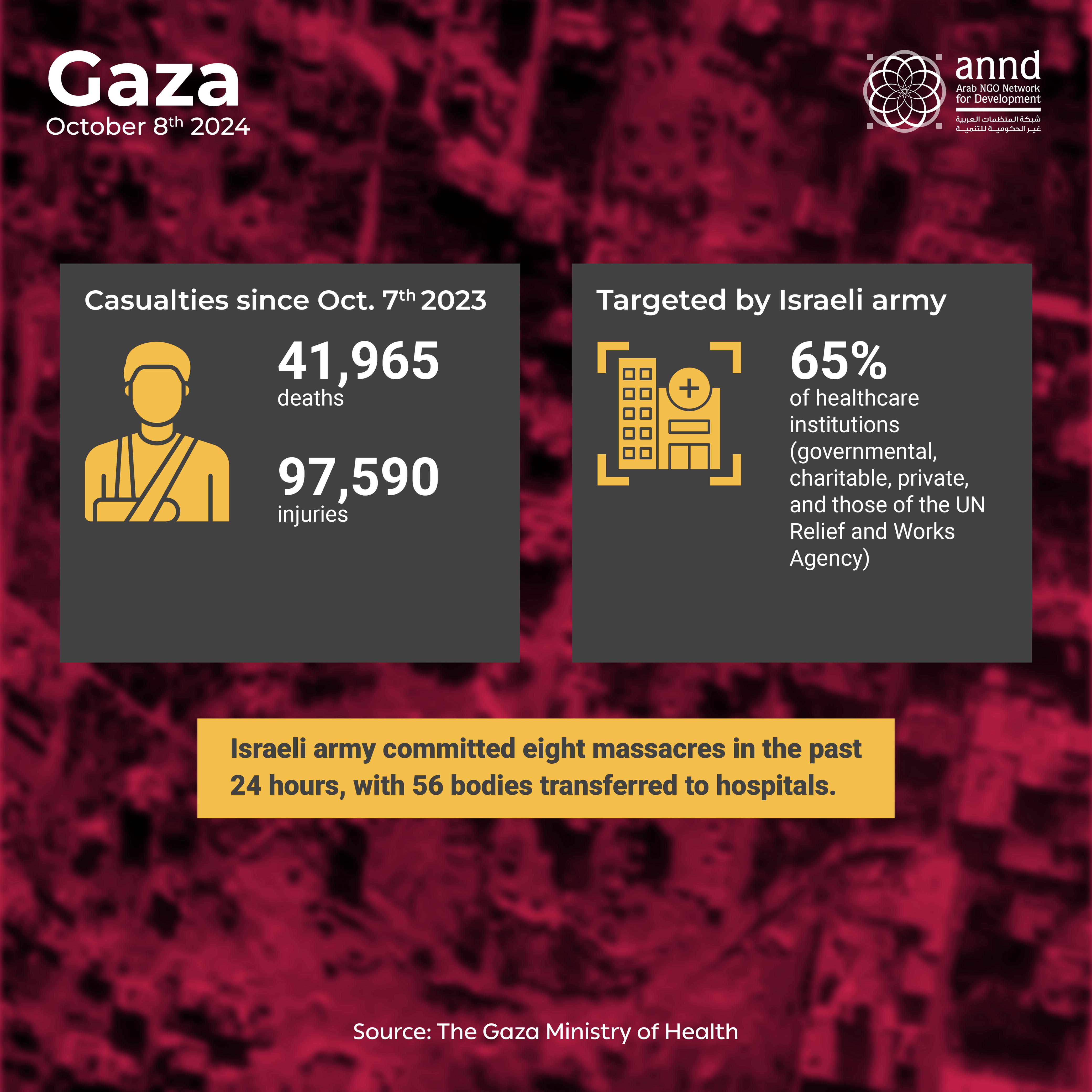
A Region on Fire
Issue 12 - October 8, 2024
Wars in Every Direction
One year after October 7, events in the Middle East have spiraled out of control. Israel is now engaged in military conflicts on multiple fronts, including Gaza, Lebanon, Iran, Yemen, Syria, and Iraq. Additionally, Israel is facing verbal and political confrontations with the United Nations, the International Court of Justice, the International Criminal Court, and the majority of the member states in the UN General Assembly. These entities oppose or express reservations about Israel's aggressive warlike tendencies, which they consider violations of international law. However, this opposition has not translated into a reduction in the military and political support for Netanyahu's government, nor has it led to a ceasefire—temporary or otherwise—in Gaza or Lebanon.
Lebanon: Battlefield Developments
Ongoing Airstrikes: Israeli airstrikes have continued across various villages in the Bekaa and southern Lebanon, as well as in the southern suburbs of Beirut. Israel's attacks have targeted homes and civilian facilities, resulting in more casualties, injuries, and destruction.
According to the Lebanese Disaster Management Unit, in the last 24 hours up until 6 PM Tuesday October 8, there were 137 airstrikes, bringing the total to 9,400. The number of martyrs stands at 36, with 150 injured, bringing the overall toll to 2,119 martyrs and 10,019 injured. The number of displaced people in shelters has reached 181,700. Since September 23 until November 8, 304,897 Syrian citizens, 107,333 Lebanese citizens, and 3,516 Arabs and foreigners have crossed into Syrian territories.
Hezbollah confirmed that they fired tens of rockets at Haifa city and its surroundings in northern Israel from areas where the Israeli army is conducting ground operations. This triggered sirens in multiple locations. The Israeli army announced Tuesday that it detected the launch of around 85 rockets from Lebanon targeting northern regions, including Haifa, describing it as the largest rocket barrage aimed at the city. Meanwhile, Israeli airstrikes targeting Hezbollah centers and leaders continued in the southern suburbs of Beirut and the Bekaa.

Civil Aviation: Mohamed Aziz, advisor to the Chairman of Middle East Airlines, confirmed that Beirut Airport has been reassured it will remain neutral in the conflict. To ensure this, the Lebanese army has taken control of security in and around the airport.
Targeting Water Facilities: Dr. Sami Alawiya, Director General of the National Litani River Authority, stated on Al Jadeed TV that Israeli forces targeted a key point in the Qasmiyeh River irrigation project in southern Lebanon, flooding vast agricultural lands. The project provides drinking water to a wide area of the western sector and irrigates large agricultural lands.
Healthcare Facilities Under Attack: The World Health Organization announced that since October, Israeli airstrikes have targeted healthcare facilities in Lebanon 36 times, resulting in the closure of 96 primary healthcare centers and clinics, and the deaths of 77 healthcare workers.

Political Developments
Prime Minister Najib Mikati received Lulwa bint Rashid Al-Khater, the Qatari Minister of State for International Cooperation, who conveyed a message of solidarity and love to Lebanon. She affirmed Lebanon's right to preserve its security and stability and strongly condemned the attacks on Lebanese civilians. She stated that Israel would not have escalated the conflict beyond Gaza if the international community had taken a firm stand earlier.
Lebanese Parliament Speaker Nabih Berri received a phone call from his counterpart in the UAE, who expressed solidarity with Lebanon and pledged the necessary measures to provide urgent aid, as well as opening donations from the Emirati people.
Socialist leader Walid Jumblatt said he and the heads of parliament and government laid the groundwork for a possible solution or settlement within Lebanon, including the application of UN Security Council Resolution 1701 and the deployment of the army in the south. He also emphasized the need to reach a ceasefire through the UN, implement Resolution 1701, and the 1949 armistice agreement, and elect a consensus president. Only after this can Lebanon address its defense strategy and arms outside state control. He also criticized Iran's foreign minister for trying to lecture the Lebanese on resistance.
Kataeb Party leader MP Sami Gemayel said it was time to realize that Lebanon is being manipulated and that Lebanese have only each other to rely on. He stressed the importance of restarting negotiations and halting Israeli ground invasion, adding that Hezbollah must accept the Lebanese state's decision to declare a ceasefire after the destruction and collapse of deterrence.
Former UN envoy Dr. Ghassan Salamé stated that Israel's war on Lebanon follows a plan established in 2006 and enhanced with technology. He added that Lebanon has accepted the French ceasefire statement and that France seeks to end the war and achieve a settlement, but only the U.S. has the power to make this happen by stopping financial and military aid to Israel and refraining from using its veto in the Security Council.
Hezbollah's Deputy Secretary-General Sheikh Naim Qassem said the U.S. and Western countries are pressuring Hezbollah not to confront Israel, adding that Lebanon was targeted even before its support for Gaza as part of Netanyahu's plan for a "New Middle East." He expressed confidence in Speaker Nabih Berri to negotiate a ceasefire, with other issues like electing a president and forming a full government to be addressed afterward. He affirmed Hezbollah’s continued fighting capabilities and readiness to elect a new secretary-general.
Former minister Suleiman Frangieh, Hezbollah's presidential candidate, said Speaker Nabih Berri continues to support his candidacy. He emphasized the need for a "national, Arab" president who protects the resistance, but if consensus is reached on another candidate, he will not oppose them.
Humanitarian Response
Qatar has launched an air bridge from Doha to Beirut, expecting to send 10 planes loaded with medical supplies, shelter materials, and food throughout this month.
Two French military planes arrived at Beirut’s Rafic Hariri International Airport carrying medical aid from the French government, in the presence of the French ambassador. Planes from Jordan, Egypt, Turkey, Poland, Pakistan, Russia, and the World Health Organization have also landed.
However, the amount of aid so far has not met half the needs outlined in the joint appeal by UN agencies in Lebanon and the Lebanese government.
International Positions
The UN Special Coordinator for Lebanon and the head of UNIFIL issued a joint statement, noting that a year has passed since Hezbollah began launching rockets toward Shebaa Farms in violation of Resolution 1701. The statement lamented that daily crossfire across the Blue Line has now escalated into a full-scale military campaign with devastating human costs, including widespread Israeli bombardment and Hezbollah rocket fire into Israel, leading to unimaginable losses in lives and mass displacement.
The UN Secretary-General's spokesperson expressed deep concern over recent Israeli military activities near a UNIFIL site in Lebanon and reiterated that the safety of peacekeeping forces operating under a Security Council mandate must not be compromised.
The French President emphasized France’s unwavering commitment to Israel's security, asserting Israel’s right to defend itself against terrorism. However, he also voiced his belief that the time for a ceasefire has come, arguing that extending the war to Lebanon will not bring the security that Israel or the region seeks. He called for immediate efforts to implement political solutions to ensure peace.
According to Axios, U.S. officials have stated that while the Biden administration does not oppose Israel’s response to the Iranian attack, it expects the response to be measured. The White House emphasized that U.S.-Israeli relations are stronger than ever.
The U.S. State Department announced its commitment to the full implementation of Resolution 1701 in Lebanon and stated that Israel’s ground operations in Lebanon remain limited so far. Israel has also assured the U.S. that the routes to Beirut Airport will remain open.
The Iranian Foreign Minister warned Israel against underestimating Iran's capabilities, stating that Iran will respond swiftly and harshly if its infrastructure is attacked, and emphasized that Iran has targets across Israel that its missiles can reach.
Israeli Defense Minister Yoav Gallant said Hezbollah has become a headless organization after the deaths of its leaders Hassan Nasrallah and potentially Hisham Safi al-Din, Hezbollah’s likely successor. He argued that Hezbollah's firepower was built over years with significant Iranian investment, but when the dust settles, Iran will realize it has lost a crucial asset in Lebanon.
Israeli Prime Minister Benjamin Netanyahu urged the Lebanese people to liberate their country from Hezbollah, and confirmed that Israel successfully assassinated Hezbollah's Secretary-General Hassan Nasrallah and his successor, Hisham Safi al-Din, marking the first official acknowledgment of Safi al-Din’s death.
EU Foreign Policy Chief Josep Borrell warned that the situation in Lebanon is deteriorating, stating that the Lebanese army cannot be a parallel force to Hezbollah, nor can it guarantee the country’s security.
In a joint press conference, the foreign ministers of Egypt and Jordan rejected Israel's intentions to relocate West Bank residents to Jordan and Gazans to Egypt, reaffirming their opposition to displacing the Palestinian people and calling for the immediate cessation of Lebanon’s suffering from Israeli aggression. They also reiterated their commitment to helping Lebanon amid the ongoing humanitarian crisis.
Gaza: Two Million People Deprived of Healthcare
The Gaza Ministry of Health reported Tuesday that the total death toll has risen to 41,965 Palestinians due to continuous Israeli airstrikes since October 7 of last year. Injuries have reached 97,590 amidst deteriorating healthcare conditions throughout the Gaza Strip. The ministry revealed that the Israeli army committed eight massacres in the past 24 hours, with 56 bodies transferred to hospitals.

The ministry announced in a statement issued on Monday, October 7, that the Israeli army targeted approximately 65% of healthcare institutions (governmental, charitable, private, and those of the UN Relief and Works Agency), while the remaining institutions are operating only partially, with an occupancy rate of 300%, particularly in intensive care units and neonatal wards. It added that the Israeli army destroyed infrastructure, including sewage systems, and prevented the entry of cleaning and disinfecting supplies, leading to the spread of epidemics and diseases, such as hepatitis, polio, and skin diseases.
Recent publications

